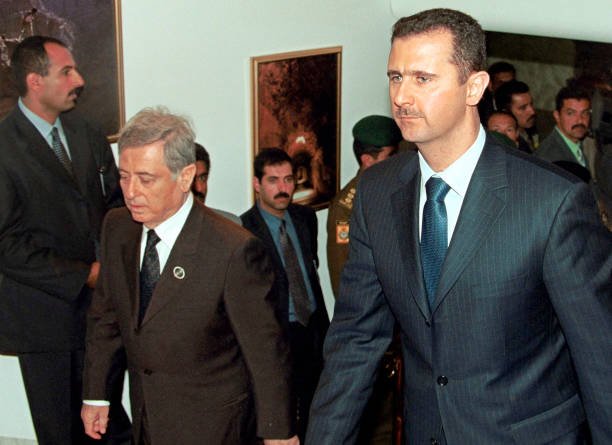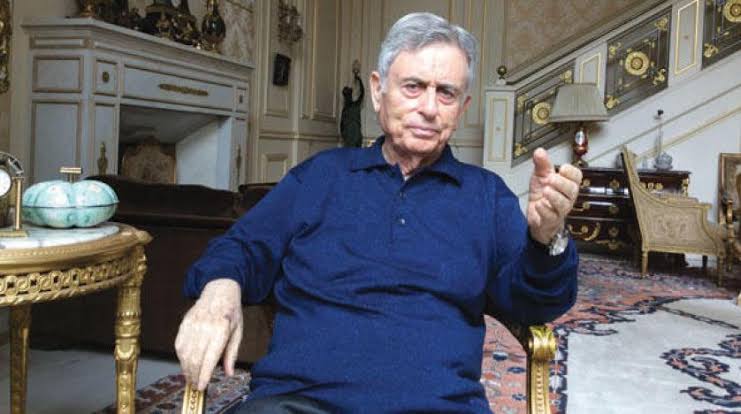Dear brothers,
Greetings, and after that,
Firstly, the Middle East region, due to its location between the three continents and its vast oil reserves, is the most important area for the world economy and security.
After World War II, the United States considered this region crucial for the interests and security of the free world, making it one of the conflict zones with the Soviet Union.
Alongside the strategic importance for Western interests, the region has become significant for China due to its tremendous economic development and oil needs. Additionally, it holds particular importance for Russia, striving to negotiate with the West to secure its interests.
Secondly, three powers are vying for control in this region:
A. The West, led by the United States, has played a direct military role in the region, especially evident in the invasion of Saddam Hussein’s regime in Kuwait. For the West, the region is a red security zone.
B. Israel and its expansionist aggressive project, despite apparent constraints. This constraint has been an alternative to the Arab weakness, their fragmentation, and the establishment of direct and indirect relations with many Arab countries. This has occurred alongside the weakening of the Palestinian cause and the expansion of settlement activities.
It can be said that the Israeli project falls within the Western support framework for Israel and its protection.
C. The Iranian project, founded by Ayatollah Khomeini after the success of the Islamic Revolution in Iran, aims to build a strong state that serves as a reference in the region. This direction gained strength after the end of the war with Iraq in 1988, allowing Iran to establish significant military, security, and political influence. Iran has used opportunities to implement its program, extending its influence from Lebanon, encompassing a large portion of Palestinians, to becoming deeply rooted in Syria. It also utilized its allies in Iraqi parties to cover the U.S. war on Iraq. Consequently, Iran eased Saddam Hussein’s regime’s fall while the Americans lost in Iraq. Today, Iran is considered the key player in Iraq.
Moreover, Iran has employed the growth of religious nationalism among Shia Muslims, whose allegiance has shifted predominantly to Iran.
Thirdly – It is painful and alarming that most of these conflicts in the region and around it revolve around Arab lands, their wealth, future, and security, in the absence of any Arab project and in the midst of Arab fragmentation.
Fourthly – The conflict is now practically between the West, led by the United States, and Iran:
- The West aims to change the regime in Iran, establish a new system, and reduce Iranian influence within Iran. In other words, the current Iran should transform into a large Iranian state but confined within its national borders, similar to Egypt.
- Iran’s goal is to control the region from Lebanon to Afghanistan, become the leader of the region’s peoples, serve as their reference, end Western influence, and maintain hostility towards Israel.
Iran succeeded in using the resistance issue by establishing Hezbollah in Lebanon. It employed its alliance with Syria to control the Palestinian card, presenting itself as the sole anti-Israeli party. Through this policy, it succeeded in controlling Lebanon, a significant portion of the Palestinian cause, as well as the Syrian regime and the situation in Iraq. Reviewing Iran’s situation during the 1980s war and comparing it to today shows that Iran has essential cards in the Arab region and in Afghanistan. It utilizes these cards to protect its interests and national objectives.
Fifthly – The question arises: Where is the region heading, towards regional and international peace, or towards continued conflict and the possibility of turning it into a military confrontation?
This requires examining the main goals of the conflicting parties. Is Iran ready to abandon its strategy and objectives after establishing these foundations? I doubt it because any retreat in Iranian strategic goals could lead to the collapse of the regime, especially considering the political structure’s cracks in Iran. This rift may be a reason for continued radicalism. However, will Iran wage war against the West and Israel to achieve its goals? Simply put, this will not happen, as Iranian power is defensive and will not fight beyond its national borders except in self-defense. However, it will continue to use expansionist policies.
The other question is whether the West is ready to abandon its strategic goals in the region and hand over control to Iran, dealing with it within the framework of interests. I also doubt that because Iran’s strategy has regional and international dimensions. Handing over the region to Iran would lead to a series of disturbances, threatening oil security in the region.
The process of conflict will continue, witnessing ups and downs, and the region will remain in a state of instability and turmoil until this conflict is resolved by one of the sides.
Sixthly – The alliance between the Syrian regime and Iran will persist for various reasons related to the nature of the regime and the overall situation in the region. Therefore, attempts by the West and some Arab countries to contain the regime will be futile. The regime realizes that breaking ties with Iran will cost it essential cards that play a role in its protection. Furthermore, what is required of it is not just to abandon the alliance with Iran, but more than that, to contribute to the liquidation of Hezbollah, Hamas, and the rest of the Palestinian opposition factions. The regime knows that the West is unable to return the Golan Heights to Syria on Syrian terms. Thus, the regime will become marginalized, facing internal difficulties and troubles.
The openness that occurred towards the regime is not always permanent but is linked to fulfilling what is required of it.
Seventhly – In light of these facts, the focus should be on domestic activity because the main goal of the opposition is to free itself from the abnormal situation and the people’s suffering, regardless of external factors and their impact, although they are indeed influential at times. The opposition did not emerge for reasons related to external factors but for national reasons. Therefore, the focus should be on expanding the opposition’s base and, on the other hand, working on unifying the ranks of the opposition, which has been one of its major weaknesses – fragmentation.
I am confident that the sun of freedom will rise in the sky of Syria, God willing. However, we must not fall into despair under the pressure of events happening here or there.
Abdelhalim Khaddam


